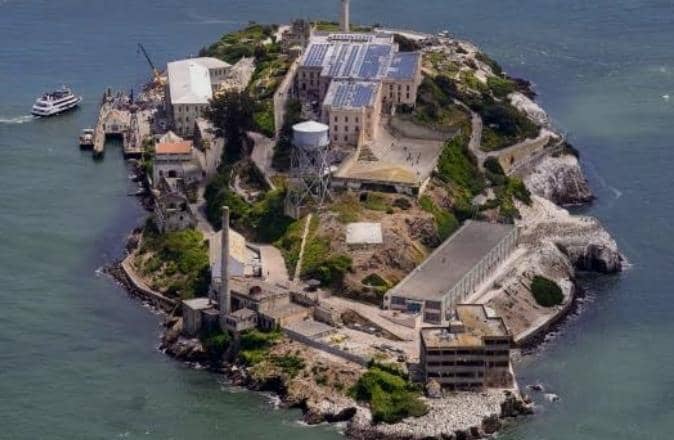DUBAI – Multiple blasts, maximum bloodshed and global impact – Thursday’s bomb attacks on London’s transport network bore the unmistakable stamp of al Qaeda.
Analysts said on Friday only Osama bin Laden’s al Qaeda network has the organisational ability and ideological zeal to direct such lethal blows in the heart of the ‘Crusader West’ it sees as waging war against Islam. Al Qaeda’s political timing, striking as US President George W Bush and British Prime Minister Tony Blair gathered at the Group of Eight (G8) summit in Scotland, was typical of their tactics.”The style is that of al Qaeda – multiple attacks in different geographical locations to inflict maximum casualties.Only al Qaeda has the ability to carry out successive attacks with such coordination,” said Mustafa Alani, a security analyst at the Dubai-based Gulf Research Centre.”We have no doubt it was al Qaeda, not only because of the planning of the attacks but because of their political timing.Al Qaeda always times its attacks with major political events.This is its strategy,” Alani said.More than 50 people were killed and 700 wounded in Thursday’s explosions, apparently the first by al Qaeda in London and the deadliest in peacetime Britain.The blasts on the underground train system and a bus bear similarities to last year’s Madrid bombings when 10 bombs hidden in sports bags exploded on four packed commuter trains at the height of the morning rush hour, killing 191 people.British officials pointed the finger at al Qaeda and two unknown groups have so far claimed responsibility, both in the name of al Qaeda.But the claims, not posted on known al Qaeda Web sites, did not appear to be authentic in their language.Attacks in quick succession designed to cause maximum damage and panic are a tactic frequently used by al Qaeda, from the 1998 bombing of two US embassies in East Africa to the Sept 11 2001, attacks on the United States with hijacked airliners.Since then, the pattern has been repeated in deadly attacks attributed to al Qaeda or like-minded Islamist militants in Indonesia, Kenya, Morocco, Saudi Arabia, Turkey and Spain.Most analysts said an al Qaeda strike in London had been a matter of time because of Blair’s support for Bush in the war on terrorism, including the invasions of Afghanistan and Iraq.”There are grounds for al Qaeda to attack the United Kingdom which they see as an ally of the United States,” Alani said.Some experts said the attackers could have been homegrown British Islamists from Arab, Asian or North African communities, recruited by al Qaeda.”There are many (Qaeda-linked) Islamist groups in London who were recruiting activists and inciting them to kill in the name of jihad,” said Fares bin Houzam, a researcher on al Qaeda.British-based terrorism expert Magnus Ranstorp said: “There may be some elements who came from outside …some veterans who provided some expertise but when the investigation is over we may find that the majority are homegrown.”Key elements in the investigation will be the type and origin of the explosives and how the bombs were detonated.”The detonation mechanism will give the real clue to the sophistication of the attacks,” Ranstorp said.Houzam said the bombers could have been part of one cell but operating with no knowledge of each other – a classic Qaeda tactic to maintain secrecy and avoid discovery if one is caught.”It’s the work of al Qaeda professionals.I am almost certain that the four who carried out the attacks did not know about each other,” he said.Despite warnings from British leaders that an al Qaeda strike was likely, analysts said Thursday’s bombings showed the global network still had the strength to plan and execute deadly assaults whose political sting is no less for Blair.”This shows that a bunch of individuals were able to overshadow the most powerful meeting of G8 nations and, more importantly, to punish Britain for supporting the United States and getting involved in Iraq,” Ranstorp told Reuters.- Nampa-ReutersAl Qaeda’s political timing, striking as US President George W Bush and British Prime Minister Tony Blair gathered at the Group of Eight (G8) summit in Scotland, was typical of their tactics.”The style is that of al Qaeda – multiple attacks in different geographical locations to inflict maximum casualties.Only al Qaeda has the ability to carry out successive attacks with such coordination,” said Mustafa Alani, a security analyst at the Dubai-based Gulf Research Centre.”We have no doubt it was al Qaeda, not only because of the planning of the attacks but because of their political timing.Al Qaeda always times its attacks with major political events.This is its strategy,” Alani said.More than 50 people were killed and 700 wounded in Thursday’s explosions, apparently the first by al Qaeda in London and the deadliest in peacetime Britain.The blasts on the underground train system and a bus bear similarities to last year’s Madrid bombings when 10 bombs hidden in sports bags exploded on four packed commuter trains at the height of the morning rush hour, killing 191 people.British officials pointed the finger at al Qaeda and two unknown groups have so far claimed responsibility, both in the name of al Qaeda.But the claims, not posted on known al Qaeda Web sites, did not appear to be authentic in their language.Attacks in quick succession designed to cause maximum damage and panic are a tactic frequently used by al Qaeda, from the 1998 bombing of two US embassies in East Africa to the Sept 11 2001, attacks on the United States with hijacked airliners.Since then, the pattern has been repeated in deadly attacks attributed to al Qaeda or like-minded Islamist militants in Indonesia, Kenya, Morocco, Saudi Arabia, Turkey and Spain.Most analysts said an al Qaeda strike in London had been a matter of time because of Blair’s support for Bush in the war on terrorism, including the invasions of Afghanistan and Iraq.”There are grounds for al Qaeda to attack the United Kingdom which they see as an ally of the United States,” Alani said.Some experts said the attackers could have been homegrown British Islamists from Arab, Asian or North African communities, recruited by al Qaeda.”There are many (Qaeda-linked) Islamist groups in London who were recruiting activists and inciting them to kill in the name of jihad,” said Fares bin Houzam, a researcher on al Qaeda.British-based terrorism expert Magnus Ranstorp said: “There may be some elements who came from outside …some veterans who provided some expertise but when the investigation is over we may find that the majority are homegrown.”Key elements in the investigation will be the type and origin of the explosives and how the bombs were detonated.”The detonation mechanism will give the real clue to the sophistication of the attacks,” Ranstorp said.Houzam said the bombers could have been part of one cell but operating with no knowledge of each other – a classic Qaeda tactic to maintain secrecy and avoid discovery if one is caught.”It’s the work of al Qaeda professionals.I am almost certain that the four who carried out the attacks did not know about each other,” he said.Despite warnings from British leaders that an al Qaeda strike was likely, analysts said Thursday’s bombings showed the global network still had the strength to plan and execute deadly assaults whose political sting is no less for Blair.”This shows that a bunch of individuals were able to overshadow the most powerful meeting of G8 nations and, more importantly, to punish Britain for supporting the United States and getting involved in Iraq,” Ranstorp told Reuters.- Nampa-Reuters
Stay informed with The Namibian – your source for credible journalism. Get in-depth reporting and opinions for
only N$85 a month. Invest in journalism, invest in democracy –
Subscribe Now!










